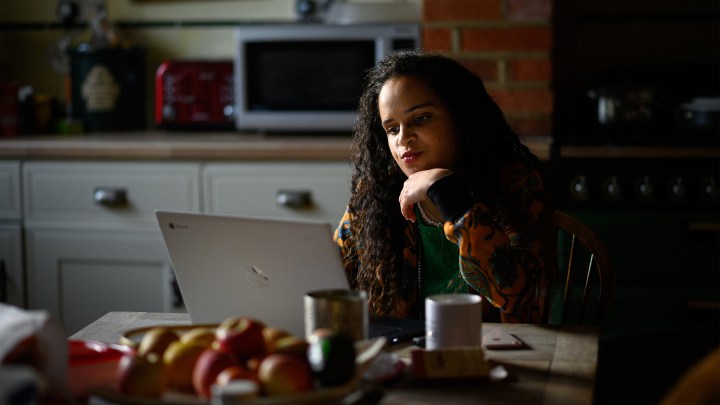
Black therapists say they are seeing an uptick in demand for their services
Black therapists say they are seeing an uptick in demand for their services

The COVID-19 crisis almost forced the closing of Anissa Keyes’ business. Then a police officer killed George Floyd, and suddenly, as a Black therapist, she could hardly keep up with demand.
Many African Americans have experienced trauma and anxiety after the killing of Floyd. And even though the officers involved have been charged and many of the protesters have headed home, there can be long-lasting effects on mental health among Black people. Some are seeking mental health care to help them cope, but they’re looking for therapists they can trust.
Keyes recently got a call from a potential new client who told her, “I need to be seen, my husband needs to be seen, we need couples work and then my son needs to be seen.” She went on: “We need it to be an African American therapist, and I’m just curious, by the way, is this an African American-run agency? And if it is, is it Black owned?”
Keyes can answer yes to all those questions. She runs a mental health clinic in North Minneapolis where more than half the clients are people of color, mostly Black. A lot of the clinic’s therapists are Black, too.
That’s especially rare here. In Minnesota, 95% of mental health professionals are white; just over 2% are Black. But nationally it’s not much better.
Keyes said before Floyd died, that didn’t seem to matter so much, and clients rarely asked to see a Black therapist.
Now though, she said, pretty much all of them do. She said it seems as if clients are looking for a place where they can feel safe.
“The nation has showed me that as a Black person in this country, I’m not safe,” she said. “So I think the feeling of going into a therapy office with a white-bodied person might not really feel safe.”
For therapy to be effective, people need to feel safe. That’s especially true now that most sessions have gone either online or to the phone to keep people safe from COVID-19.
The anxiety that police killings cause can last. One 2018 study published in The Lancet looked at the mental health of people before and after police killings in the same state. It found that the resulting trauma affects Black communities for months afterward.
Marlee Dorsey, another Black mental health professional, runs a practice in Minneapolis that focuses on racial trauma. She said calls to her practice tripled the week after Floyd’s death.
“When [my clients] see the videos, they think about their own experiences with the police, which has not been very positive. Or their friends experiences with the police, which have not been very positive. Or their parents or their grandparents,” she said.
Anissa Keyes said a lot of the calls she’s been getting since Floyd died are from people seeking professional mental health care for the first time. She doesn’t want to have to turn anyone away.
So she’s been trying to hire more Black clinicians, but said she’s having a hard time finding any.
There’s a lot happening in the world. Through it all, Marketplace is here for you.
You rely on Marketplace to break down the world’s events and tell you how it affects you in a fact-based, approachable way. We rely on your financial support to keep making that possible.
Your donation today powers the independent journalism that you rely on. For just $5/month, you can help sustain Marketplace so we can keep reporting on the things that matter to you.


















